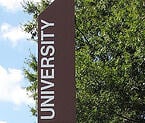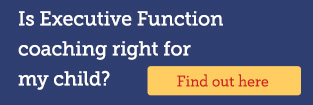Editor's note: This guest blog article was written by Joan K. Casey, the president and founder of Educational Advocates College Consulting, an educational consulting firm.
If you are a high school junior, there is a good chance that over the holidays a well-meaning relative asked about your college plans. If that question left you feeling overwhelmed, it might mean you need a plan to organize your college search. So get out from under those college view books and test prep study guides and review these tips to help you learn how to organize your college search.
your college plans. If that question left you feeling overwhelmed, it might mean you need a plan to organize your college search. So get out from under those college view books and test prep study guides and review these tips to help you learn how to organize your college search.
1) Manage the Mail and the Email from Colleges
If you took the PSAT then you are probably receiving a huge volume of mail and email from colleges. This is a distraction because the colleges are sending you information based on your test scores—and you are a lot more than your test scores! Focusing on the colleges that send you mail means you may be eliminating many colleges that are a better fit for you. A college that fits will consider a wide range of factors—from your interests, strengths, and personality to your geographic and peer group preferences—as well as your grades and course choices. I recommend to students struggling with how to organize all this information to either recycle the brochures, or put them aside in a physical box or email folder until you create your own college list.
2) Conduct A Self-Assessment Before You Begin Your College Search
When I advise students, I send them a questionnaire and ask them to reflect on themselves: everything from their favorite teachers and academic skill strengths, to the activities they love now or may want to try in college. Then we use this information to establish the criteria for their college search.
Part of thinking about what you want in a college means understanding what colleges of today offer. Consider:
- Would you like to do undergraduate research with a professor?
- Do you like when teachers know your name?
- Does experiential learning and class discussion excite you more than large lectures?
- Where does study abroad fit in?
- Do you like peers who are serious about their work? Are political activists? Share your love of sports? Care about artistic and cultural events? All of the above?
- What kind of academic support will you need?
- How hard are you willing to work?
- Is studying Arabic a top priority or do you hope to recruited for athletics?
- And don’t forget to talk with your parents about college cost so you can factor affordability into your search.
These questions are just the beginning of an assessment, however, there are many online tools that will take you through a reflective process. Try Big Future at College Board which will also help you generate a college list, or The College Match survey by my colleague Steve Antonoff.
3) Schedule Time For College Planning
One you have a list of possible colleges, take out your planner or log into Google calendar and designate two to three hours per week to work on your college plans. What goes into the calendar?
- The dates you plan to take the SAT, ACT, Subject tests or AP exams and the deadlines by which you need to register (be sure to schedule study, class or tutor time to prepare).
- Time to research colleges--Take your self-assessment and use it as your criteria for evaluating how well each college on your list meets your needs. Buy a good guidebook such as The Fiske Guide to Colleges and become an expert at navigating college websites. Be sure to take notes on Google docs or some other document you can easily access from your phone or computer. Set a goal to complete three colleges per week at the least.
- Set a time each week to meet with your parents to discuss your impressions of the colleges you research and to schedule visits. Leave college matters to this designated time so you don’t feel like tearing your hair out because the only thing anyone talks about anymore is college admissions!
4) Register for the Mailing List and For College Visits
Add yourself to the mailing list on the admissions page of the college website, especially if you cannot visit the college (you will be notified when they visit your local area). If you are planning college visits on major holidays or school vacations, schedule your visits on the college website as early as three weeks in advance as tours and information sessions book up at some schools. Remember that spring school vacations are a great time to visit because students are more likely to be on campus than over the summer.
5) Track Deadlines and Checklist
Once you narrow your list, use a portal such as Naviance used by most high schools to track application deadlines—there is even a Naviance app you can download to your smartphone. The Common Application, accepted by most colleges, is available on August 1 each year and provides a dashboard of deadlines and captures each college essay you will need to write. Online tools such as My College Calendar detail the steps of the process for both junior and senior year by month.
Finally, it is okay to ask parents for help as long as you, the student, take ownership of the overall college search process. See these tips for the parent’s role in the college admissions process.
Editor's note: As Academic Coaches, we help students learn to effectively manage their workloads and extracurricular activities as they prepare for college. Click below to find out more about academic coaching.
Joan K. Casey is the president and founder of Educational Advocates College Consulting, an educational consulting firm that helps students and families determine college fit and affordability. We offer sound advice in a supportive environment, a step-by step approach, and personalized services that help students engage with high school and identify options to prepare for life-long success. Contact her at Jcasey@educationaladvocates.
an educational consulting firm that helps students and families determine college fit and affordability. We offer sound advice in a supportive environment, a step-by step approach, and personalized services that help students engage with high school and identify options to prepare for life-long success. Contact her at Jcasey@educationaladvocates.

